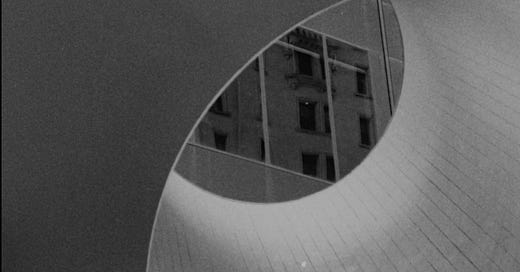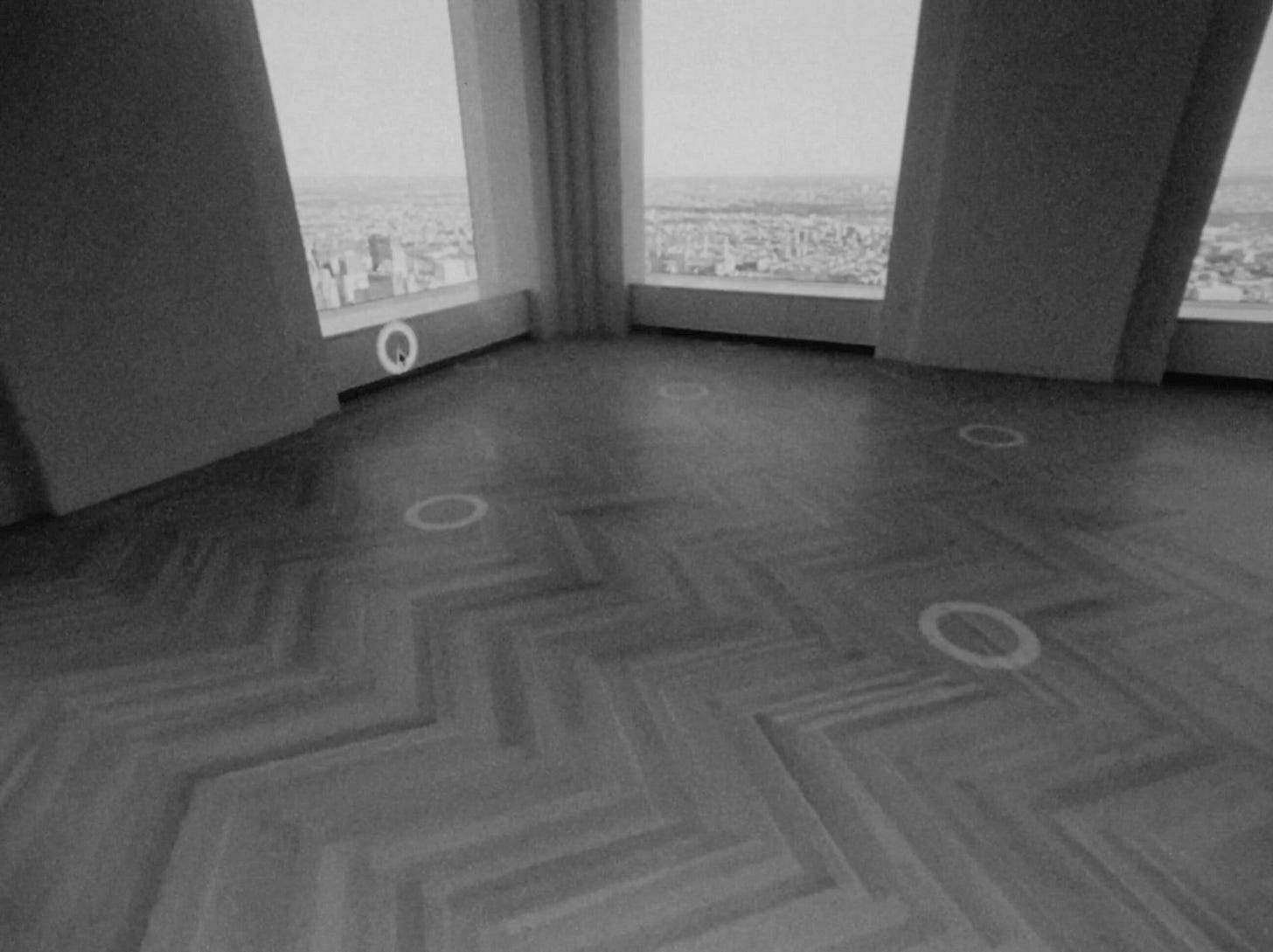Over the coming weeks, I will be writing about some films which I enjoyed at the Moviate Underground Film Festival in May 2025.
Foot to Ground, a nine minute short by Christopher Thompson, finds poetry within the empty Manhattan luxury apartments owned, but seldom used, by wealthy people. A considerable part of the pleasure of the film comes from the beauty and originality of Thompson’s writing, heard in the film’s narration, breathlessly read by Emmanuelle Ladji. Thompson uses a densely lyrical poetic style to discuss the type of home decor preferred by wealthy elites in New York, not a subject usually known to inspire flights of poetry. Yet Thompson manages to show us, through the beauty and precision of his language, the strange fascination of the history of rich New Yorkers and their real estate:
“Broken shards of shattered crystal scatter beams of light throughout the cavern, illuminating fetishes of a previous century, lingering in the hall.”
“Furnaces of commerce spark fiber-optic flames.”
A champagne glass, lying in shards on the floor, announces the violence of a rupture with the opulent style of conspicuous consumption which held sway in Gilded Age New York, superseded by the new austerity. The theme is introduced with luxuriantly grainy black and white film footage of soulless, empty concrete edifices, smoothly descending escalators, the shots elegantly framed. The asymmetrical, intersecting planes of the buildings as well as the jagged, flashing rhythms of the editing emphasize the cold harshness of this environment. Smeary passages of hand-processed film, painted, scratched and scarred in various ways, rush past our eyes, changing on every frame. This visual chaos might refer to the implied violence of the disavowal of earlier modes of affluence.
The blank, empty luxury apartments seem to be an extension of the craze for minimalist, all-white SoHo loft spaces which held sway among the New York nouveau riche in the 1980s. Back then, one single yellow apple in a white bowl would be a daring sign of life in immaculate and lifeless “homes” where one could not see a single diaper or half-unpacked grocery bag. Now, this spirit of minimalism is extended to include the idea of actually living in one’s apartment at all: wealthy Chinese and Russian oligarchs buy up luxury apartments in the city as investments only, never intending to set foot in them, the doormen guarding the empty spaces within. Perhaps this is their way of gloating at the economic triumph of the BRICS nations over America. (The film’s title is a literal translation of the phrase pied-à-terre, an apartment owned by rich people so that they have a place to stay on rare, brief visits to a city.)
150 years ago, the elite Four Hundred families of New York were firmly rooted in their physical presence in the city, as depicted in Scorsese’s The Age of Innocence. The gaudily ornate style of decor which came into fashion then (much to the horror of older elites) celebrated a display of power through excess, an extreme crowding of detail. We see a few of these interiors, represented in grainy, high-contrast images, like xerox copies from a dusty library volume.
Fast forward to 2024, and the symbol of power has become emptiness: no furniture, no children, no jewelry or patterned clothing, and even no thoughts, no conversation, no activity. We watch a wealthy couple, sitting in their empty apartment, staring vacantly at the vacancy which they command. It’s as if they embody the accumulated wealth of a Google, an Amazon. Aggregators of content, they would consider it too vulgar to actually display any content of their own. They are merely the empty receptacles, waiting to receive our clicks and our money.
Some sequences depict an online, virtual walk-through of an apartment for sale: an empty suite of rooms, into which the potential buyer projects his fantasies of the dominance of ownership. Since these pied-à-terre apartments aren’t meant for daily living, their virtual, online version is perhaps the purest expression of their nature: pure idea.
“You cleanse the residue of past transactions,” we hear, while the woman’s hand squeezes water from a sponge onto her husband’s head. Thompson implies that the psychotic level of cleanliness of these spaces extends to a passion for obliterating thoughts, feelings, and memories, as well as for data security and concealing the intricate fraudulent pathways which create 21st century wealth and power.
The film ends with a flickering, black-and-white sequence of floor-plan diagrams, emphasizing the drive to express power through design, through architectural dominance. An animation of an endlessly rising glass and concrete tower embodies the geometric abstraction being fetishized here. In an information economy, these owners of intellectual property seek out the idea of property, of a home, rather than the messiness of the real thing. A higher value is placed on the apartments higher up in the tower not simply because of the pretty view, but precisely because they are less grounded, further away from the wild fertility of the soil.
The beautifully crafted, hand-processed, tactile quality of Thompson’s 16mm work carry an implied critique of the impersonal displays of power we are watching. His poetic narration captures the flow of history and fashion at several levels of remove: observing the changing definitions of private space in the city as an alien visitor might, fascinated by the odd twists and turns of style. It’s a quirky, original artistic vision, rich with nuance and implication.
My articles on experimental film are freely available to all, but are supported by monthly and annual donations from readers. Please consider becoming a paid subscriber to support my work. Thank you.








